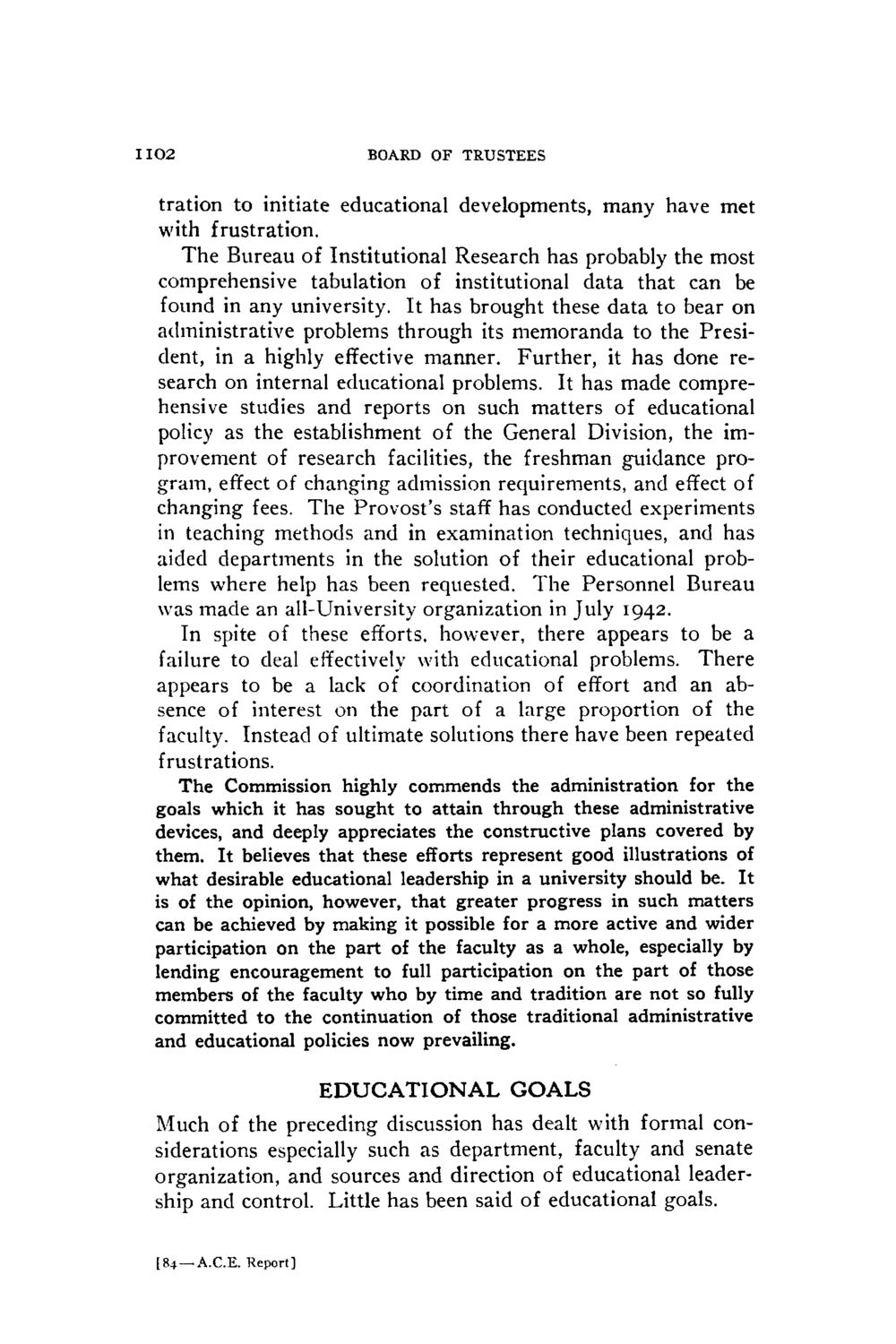| |
| |
Caption: Board of Trustees Minutes - 1944
This is a reduced-resolution page image for fast online browsing.

EXTRACTED TEXT FROM PAGE:
II02 BOARD OF TRUSTEES tration to initiate educational developments, many have met with frustration. The Bureau of Institutional Research has probably the most comprehensive tabulation of institutional data that can be found in any university. It has brought these data to bear on administrative problems through its memoranda to the President, in a highly effective manner. Further, it has done research on internal educational problems. It has made comprehensive studies and reports on such matters of educational policy as the establishment of the General Division, the improvement of research facilities, the freshman guidance program, effect of changing admission requirements, and effect of changing fees. The Provost's staff has conducted experiments in teaching methods and in examination techniques, and has aided departments in the solution of their educational problems where help has been requested. The Personnel Bureau was made an all-University organization in July 1942. In spite of these efforts, however, there appears to be a failure to deal effectively with educational problems. There appears to be a lack of coordination of effort and an absence of interest on the part of a large proportion of the faculty. Instead of ultimate solutions there have been repeated frustrations. The Commission highly commends the administration for the goals which it has sought to attain through these administrative devices, and deeply appreciates the constructive plans covered by them. It believes that these efforts represent good illustrations of what desirable educational leadership in a university should be. It is of the opinion, however, that greater progress in such matters can be achieved by making it possible for a more active and wider participation on the part of the faculty as a whole, especially by lending encouragement to full participation on the part of those members of the faculty who by time and tradition are not so fully committed to the continuation of those traditional administrative and educational policies now prevailing. EDUCATIONAL GOALS Much of the preceding discussion has dealt with formal considerations especially such as department, faculty and senate organization, and sources and direction of educational leadership and control. Little has been said of educational goals. [84 —A.C.E. Report]
| |